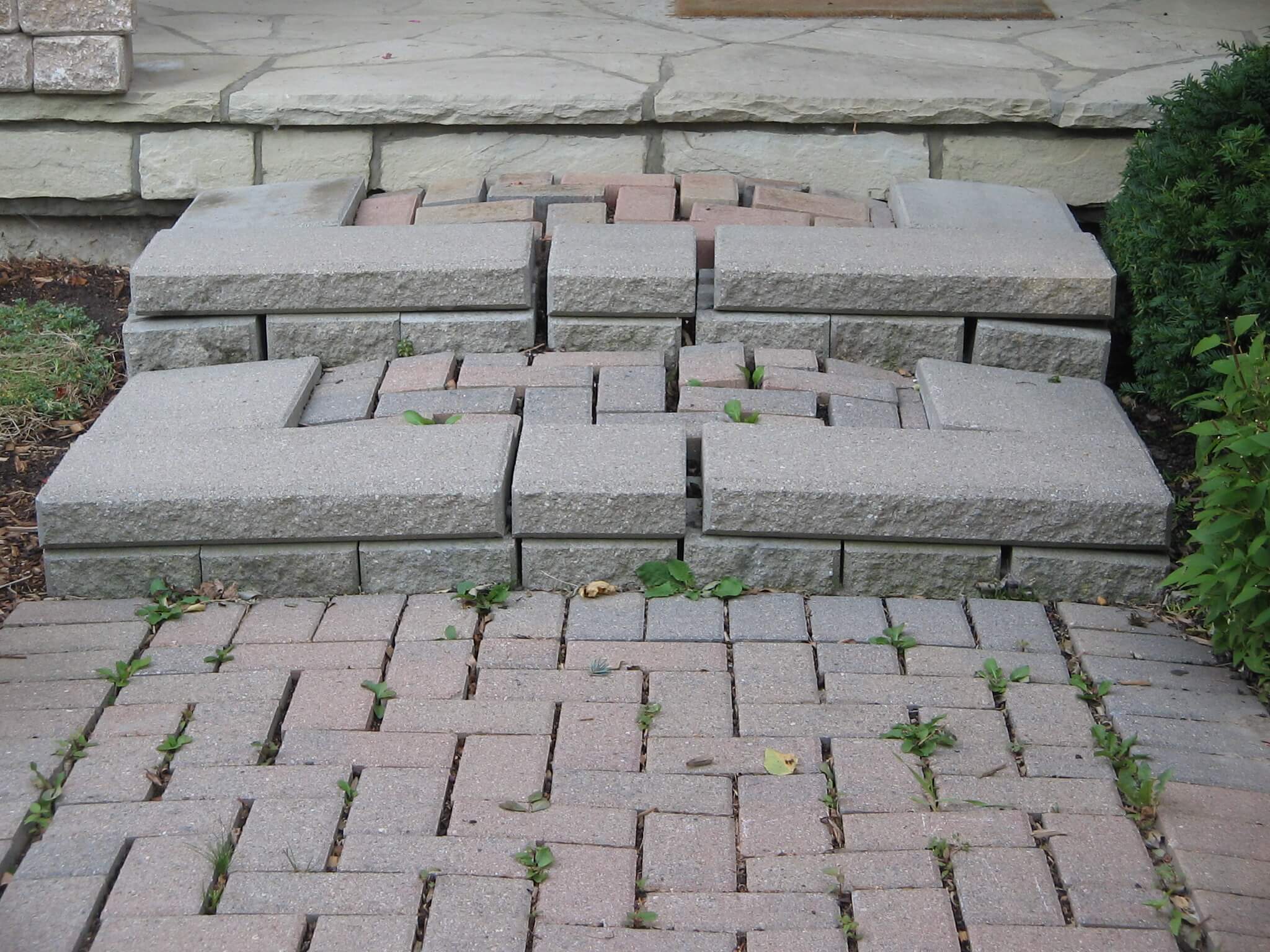Weeds are not only capable of ruining your garden; they can do a tremendous amount of damage to pavers in front of and around a house. Quite a bit of money can be invested in pavers and for good reason. They can truly enhance the look of a property while also contributing greatly to the overall landscaping.
Interlock pavers can be ruined and ruined in a costly manner by errantly growing weeds. Once the pavers have been dislodged, the surface becomes uneven. Visually, this can distract immensely from the look of the property. Looks are not the only major problem that can arise. An uneven surface can create the risk of a slip and fall hazard, which certainly is not acceptable on any property.
Quality landscaping work is going to be more about prevention than curing. In other words, the best way to deal with the presence of weeds is to prevent then from undermining the look of the interlock pavers in the first place. Removing the weeds after major damage has occurred means repair work on the pavers is unavoidable. In some cases, the stones make have to be completely removed and an entirely new paving might have to be performed. The cost of this can be enormous. Preventive measures are the better and wiser strategies to put into effect.
Frequently, the steps for preventing weeds from ruining paving stones are simple.
Using polymeric sand falls under the category of simple solutions that deliver effective results. The most obvious benefit of using this type of sand is it helps promote greater interlock stability, but there is another excellent benefit achievable from using the sand. The presence of the sand can prevent weeds from emerging in between the stones. Since the weeds cannot grow, they cannot undermine the evenness of the interlock stones.
If there is a current problem with weeds detracting from your landscaping, killing off and removing the weeds has to be done. Do not fret over the job as it is not going to be anywhere near as difficult as one might assume. The steps entail cutting the weeds down to their crowns and pouring boiling water on those remaining crowns. Follow this up with spraying the crowns with a mix of four cups of water and six tablespoons of vinegar. The weeds should be effectively killed off with a couple days of performing these steps.
The job is not done though. You must clean out the sand in between the interlock paver stones and replace it with the polymeric sand sealant.
Be sure to perform these steps before the weeds outright dislodge the stones. Doing so cuts down on the necessity of having to redo the entire interlock project.

In 2008, following a successful career as a member of the Canadian Alpine Ski Team, Jonathan Robert stepped into the landscaping industry, starting Jonathan Robert Landscapes. In the years since he’s quickly earned a reputation for high-quality work with creative designs and has been recognized in several industry-leading publications. Jonathan’s always got an eye on innovation and is always looking ahead to see what’s on the horizon in the industry. He works hard to stay on top of current guidelines, practices, and regulations. Jonathan is a member of Landscape Ontario, the International Concrete Paving Industry (ICPI), Canadian Nursery Landscape Association (CNLA), and is a Tech-Pro contractor.






